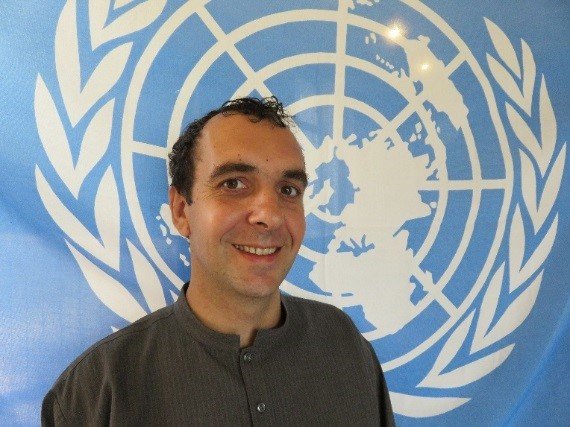Albert Einstein famously said that the woman who follows the crowd will usually go no further than the crowd. The woman who walks alone is likely to find herself in places no one has been ever before.
Sharda Devi, a class 12 pass-out chose to be the latter. She has started her own shop where she now sells self-made bags.
Coming from a place like Mahendragarh in Haryana, this was not easy for Sharda and her husband, who faced a barrage of criticism from neighbours and the extended family, when she decided to start her own business.
The ideas sprouted in March 2017, after she attended the ‘Start and Improve Your Business’ programme.
Sharda benefited from Disha – a partnership project between United Nations Development Programme (UNDP) and India Development Foundation (IDF).
The programme which aims to enable 1 million women with skills and training to help them become economically empowered, is supported by the IKEA Foundation.
More women have followed suit, seeing her success and enthusiasm. She has been a Biz Sakhi or mentor to many like her. Biz Sakhis are women business owners who have undergone extensive entrepreneurship development training with support of Ministry of Skill development and Enterprise (MSDE), The National Institute for Entrepreneurship and Small Business Development (NIESBUD) and UNDP’s Disha Project.
Sharda’s is not an isolated case. In my interaction with a group of young girls, studying in Hyderabad’s Indira Priyadarshini Government Degree College for Women, similar sentiments were voiced.
I was happily surprised to know that many women wanted to become entrepreneurs, which otherwise has been a male bastion, in India.
Government Nudge
Prime Minister’s Employment Generation Programme and other government schemes to support medium and small enterprises are proving to be a game changer. Women are now coming forward to get entrepreneurial training.
Minsitry of Micro, Small and Medium Enterprises’ flagship programme – Udyam Jyoti – for enterprise promotion and skill building is helping women to become economically independent through entrepreneurship and sustainable livelihood measures.
Schemes launched by the Ministry of Skill Development and Entrepreneurship are also helping women acquire relevant skills through vocational programmes and Skills Acquisition and Knowledge Awareness for Livelihood Promotion (SANKALP) – a scheme supported by the World Bank for overall skilling ecosystem covering central and state agencies.
Access to education and finances has improved. Venture capitalists are not gender biased when it comes to funding an entrepreneur.
There is also a greater acceptance of women as business leaders and role models. The gender gap has reduced with more women taking-up mid-level and leadership roles.
Miles to Go
According to the sixth economic census by the National Sample Survey Organisation (NSSO) only 14% or 8.05 million business establishments out of the existing 58.5 million are being run by female entrepreneurs.
Most of these women-run companies are small-scale, out of which 79% are self-financed.
The global situation too, remains lop-sided for women at 37%.
However, there are enough incentives for women to become entrepreneurs – flexible working hours for work-life balance, economic independence and ownership.
Over 224 million women in 67 countries out of the 188 recognised by the World Bank, are contributing significantly to the global economy and this in itself is an incentive to turn a she-preneur.






















